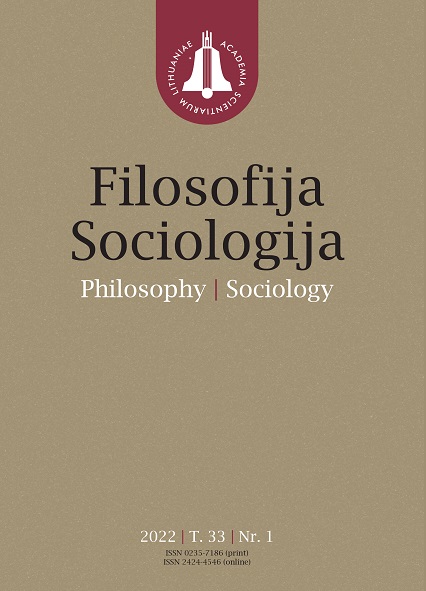Good Will and Spontaneity in Communication
Good Will and Spontaneity in Communication
Author(s): Nerijus StasiulisSubject(s): Metaphysics, Ethics / Practical Philosophy, German Idealism, Theory of Communication, Ontology
Published by: Lietuvos mokslų akademijos leidykla
Keywords: communication; good will; spontaneity; language; paradigm;
Summary/Abstract: The article is based on the interpretation of Kant’s notion of good will with regard to its meaning for successful communication. It seeks to delineate its necessary relation to spontaneity as opposed to a strictly closed definition – the spontaneity in language as crucial for communication. Agambenian and Wittgensteinian musings on language and paradigm are employed for that purpose. The art of comedy is seen to illustrate the communication based on spontaneity and paradigm and the art of tragedy is seen to depict the condition of radical incommunicability. Alongside this linguistic and epistemological approach, the discussion of the issue also includes the ontological aspect, i.e. the Agambenian-Aristotelian notion of potentiality is described as akin to the Kantian good will (Ding an sich) and is seen as the necessary (and perhaps also sufficient) condition for (successful) communication.
Journal: Filosofija. Sociologija
- Issue Year: 33/2022
- Issue No: 1
- Page Range: 14-21
- Page Count: 8
- Language: English

